The afternoon after my husband had died, I was thrust into a state of numbness and uncertainty. I experienced shock and disbelief. I spent the afternoon sitting in my living room in my husband’s leather recliner, while friends and family ran around taking care of whatever needed to be tended to. My brother, in Alabama, was command central and my brother-in-law, here in New York, made sure that those who needed to be alerted (funeral home, 911) were.
I dreaded the night to come and many, many nights thereafter not knowing what to expect now that my husband was gone. My son and my brother here in New York and others, broke down the hospital bed, threw out medications (some of which were mine……whoops) and made up my bedroom so that there was very little evidence of what had transpired earlier that day. My feelings were raw and I felt tentative and emotionally battered. The next evening,our dearest friends, Jane and George, came by. My first instinct was to run and tell Chuck that they were here.That was the beginning.


In my book Brave in a New World: A Guide to Grieving the Loss of a Spouse, veteran news anchor Vince Hill talks about how right after his wife had died, he thought ,” …..if he spoke nicely to the doctors, maybe they’d bringhis wife back to him”; I felt the same way. Initially I felt that I needed to keep things in our home intact, because maybe Chuck was coming back again.That following Monday,when the minister who would officiate at the funeral, came to see me, I felt that he could surely help and actually thought at one point that he was about to tell me, “Oh don’t worry, he’s not gone.” I thought that my pastor would bring Chuck back to me.These were extraordinary feelings for an extraordinary time from which I thought I would never recover.
After many, many months of soul-searching and self reflection and counseling,I found that I was beginning to feel my way out of the paper bag I was in. I was by no means better ,but I felt a bit encouraged about my life and moving forward. I began to feel that perhaps all was not as hopeless as I first thought. As I continued with my counseling, journaling, writing down my dreams, and staying close to dear friends and family, I began to feel encouraged that I could perhaps reach the end of the grief tunnel and emerge reborn.
The length of time for the grieving process cannot be estimated or predicted. It is purely up to each individual who grieves. Some people move on after two years and some after 10 years or some never do for a variety reasons. Some people are able to grieve and put the grief behind them quickly because they have decided that they’re done, or just one day come to a realization that they no longer feel the pain and emotional instability that had shadowed them wherever they went. As for me it was in the summer of 2010,as I sat by the ocean on a beach in Easthampton, that I began to feel as though life could be worth living again.Even with that conscious thought, I would still ride the waves of sadness, grief,and sorrow mixed with momentary moments of normalcy and stability. It was truly a rocky ride, but in time ,the intervals between grief episodes increased and the day to day sadness and pain transitioned into feelings that were more manageable and less acute.

I knew I wanted to shake off the feelings of heartache,despair and depression, so I did the hard work that needed to be done. I was consistent and stuck to my little routines daily which also helped to give me some relief from the daily hell I was in. More importantly, I did not run away from the pain. It was vitally important for me tofeel it, fall on my knees and cry and wail and do whatever I needed to do to get it all out. I did not hide from the pain, but searched for it and embraced it until I was finally free of it. It took me several years of this painstaking work but one day I was done.
I would suggest that those who grieve face the pain and not be afraid of it. There will be the temptation to stuff it away hoping it disappears on it’s own, but at some point that baggage will begin to burst at the seams and when it finally begins to seep back into your life,it may be a bigger problem than when it first appeared.
I have met a few people who have grieved for a short while and then got on with their lives. There are those who hide themselves away, taking “comfort” in their sorrow, mistakenly believing that this will keep their lost loved one close. Some feel to move on is a betrayal to the deceased. Others move on quickly, never really facing the loss and the challenges of grief that accompany it.However one chooses to deal with grief,take note, it’s up to those who grieve to get through the process. Remember though, that when someone dies whether a spouse, child, sibling, or a parent, if you believe that the essence of who they once were on earth is now a spirit, know that they are sorry they had to leave you but are rooting for you to recover and move your life forward. If you do not believe that your deceased loved one’s spirit is around, and think of them as dead,the task for you is the same,to do the work that must be done in order to be able to rebuild your life and move forward.
Go to counseling, cry, cry, cry, write down your thoughts,meditate, seek the company of friends who can listen to you and sometimes cry with you.Make sure they do not change the subject and stop them when they say something hurtful.Get out and exercise to keep the mind and body fit and healthy which will in turn strengthen and uplift the spirit. Remember the only person who can get past the grief is the one who grieves. Your recovery is in your hands.

Need help managing your grief ?Read Brave in a New World: A Guide to Grieving the Loss of a Spouse available at Amazon, Barnes and Noble and all other e-booksellers.Or go to www.braveinanewworld.com Click on the book tab and order your copy today.



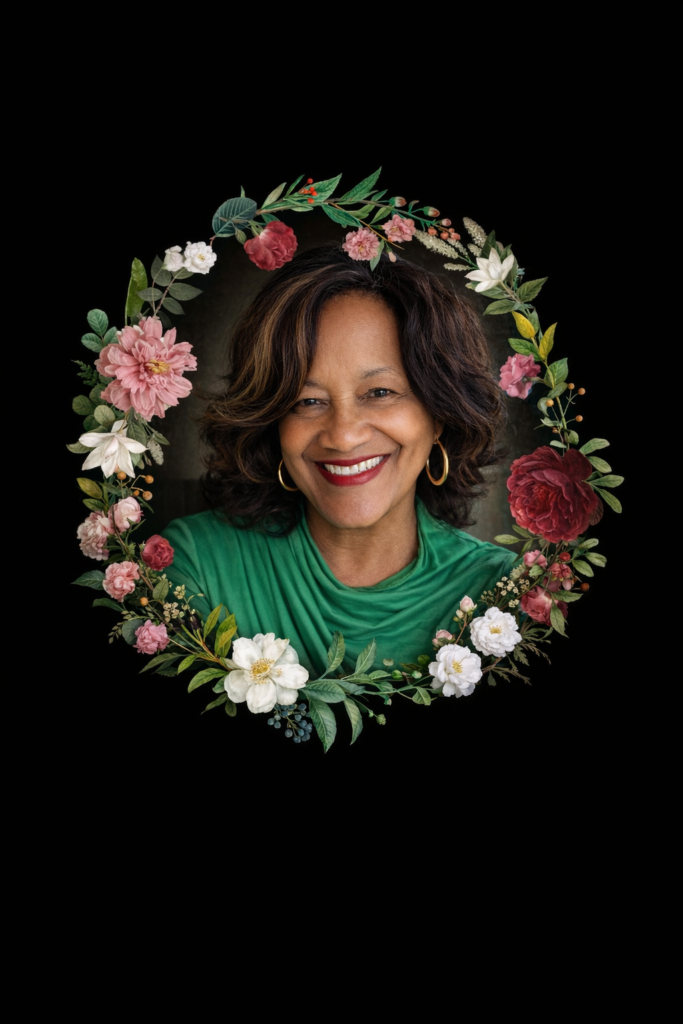
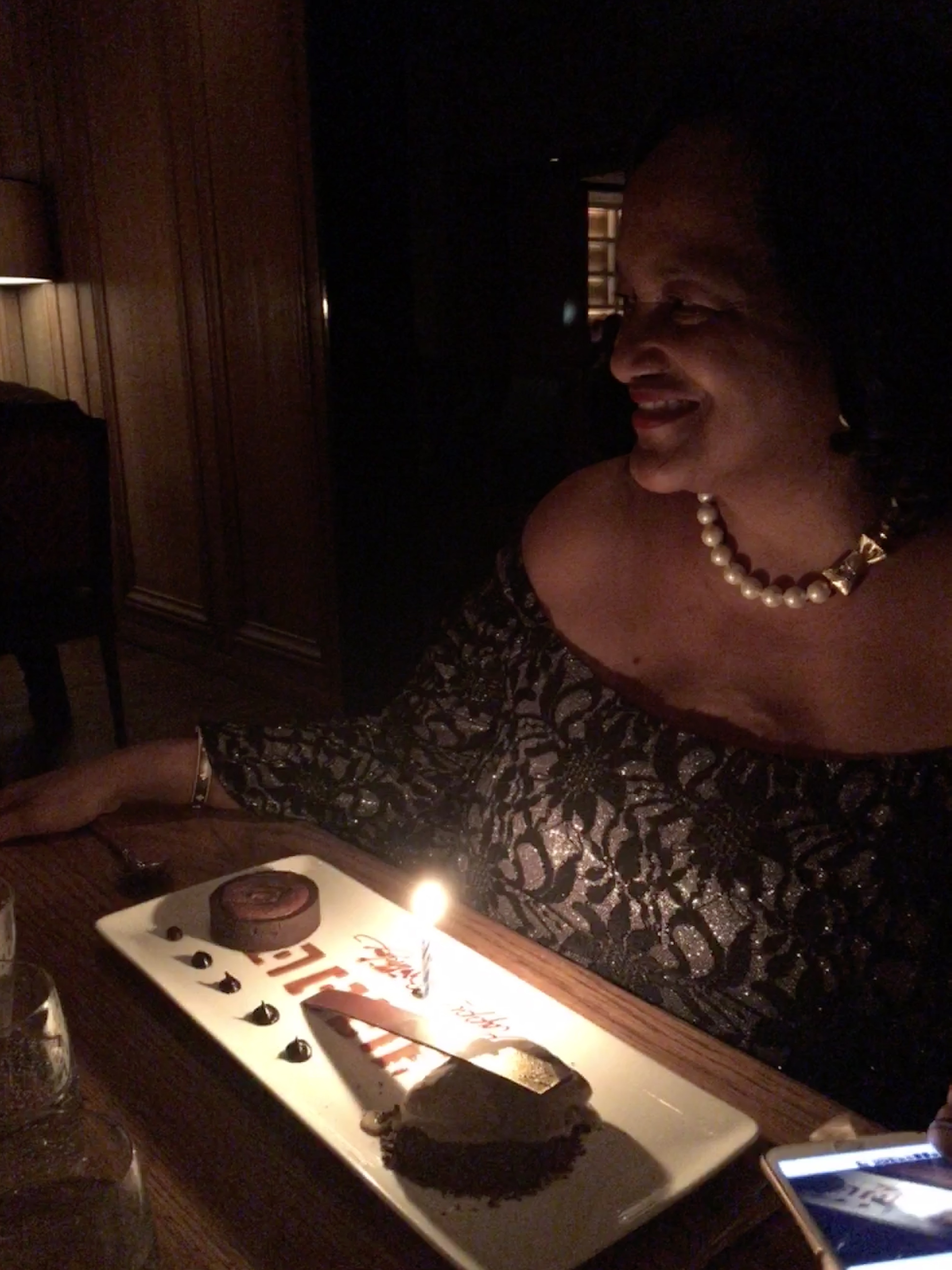
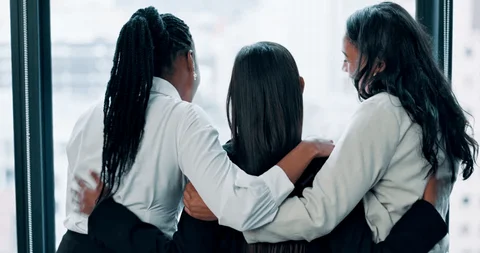
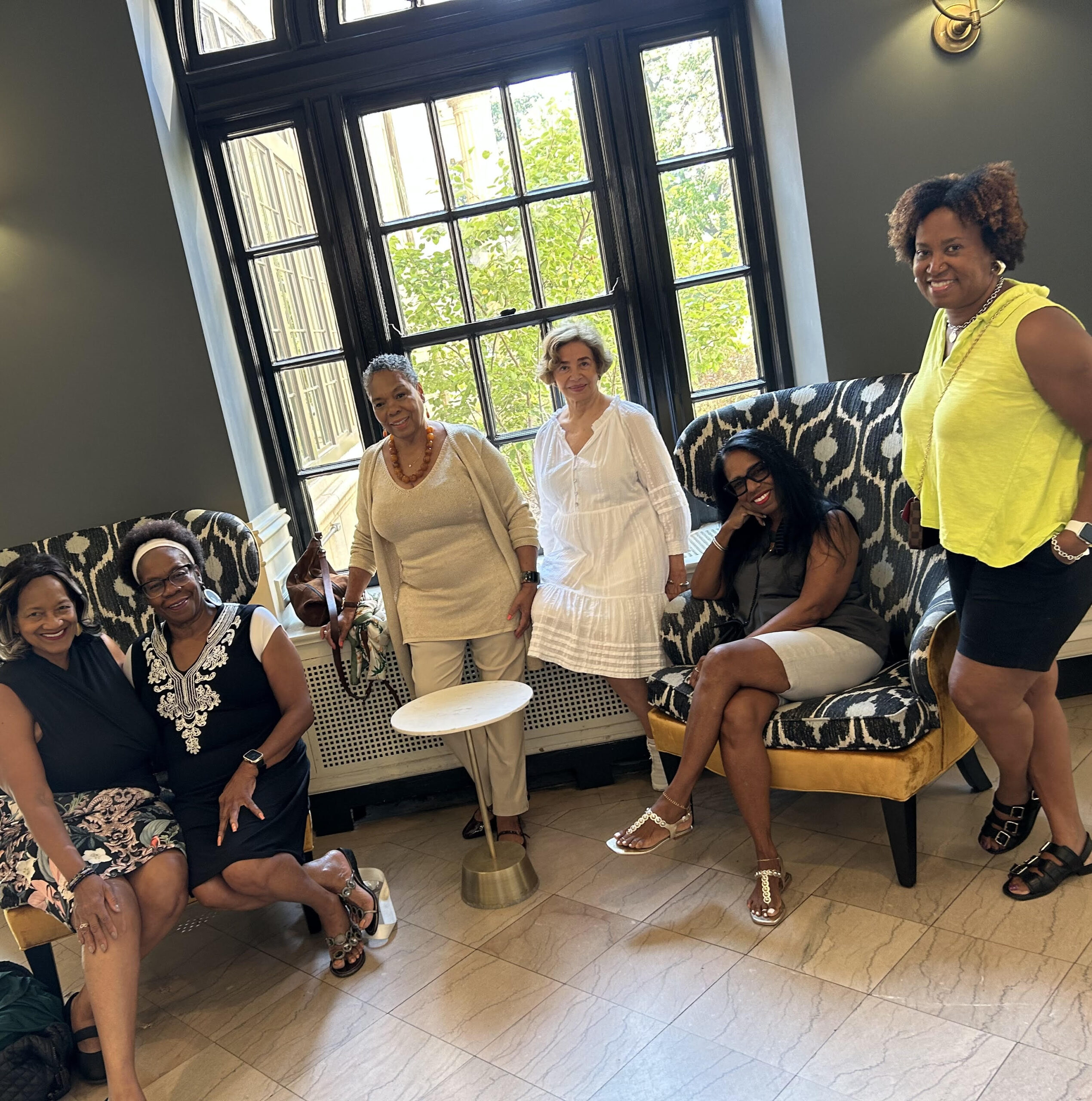



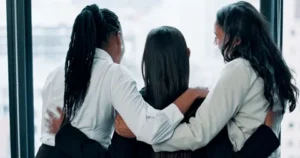
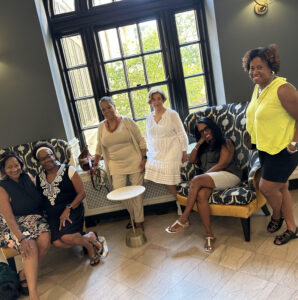







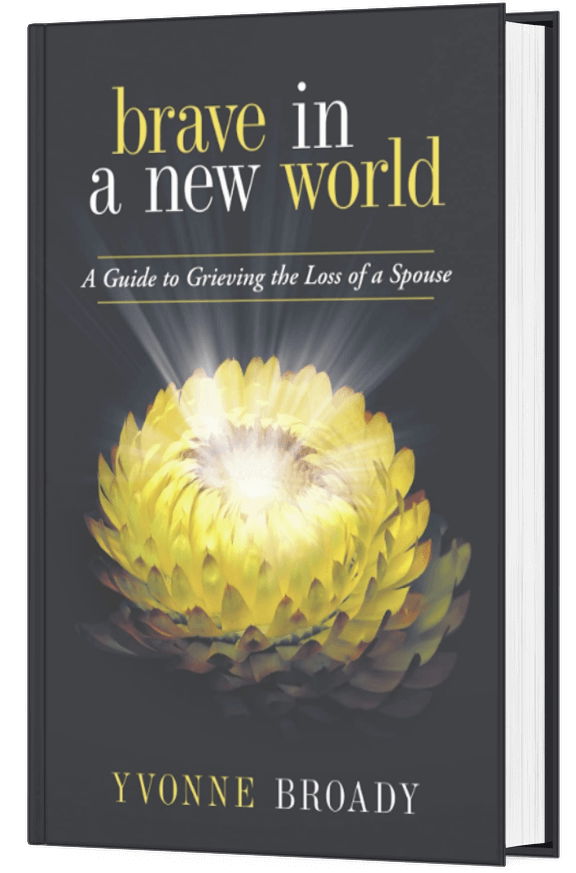

0 Responses
Reblogged this on Yvonne Broady.
I love your insights Yvonne. Whether one has lost a spouse (or loved one) through death, divorce or abandonment, what you share from your experience can be applied to many, many situations where a loss has occurred. Thank you for opening your heart to others in need!
Yvonne, thanks you for sharing your experiences, bravery and insights for those navigating the grieving process.